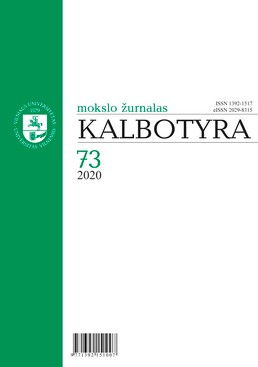Kollokationen der deutschen und der dänischen Wissenschaftssprache
Collocations in Academic Language in German and Danish
Author(s): Irene SimonsenSubject(s): Theoretical Linguistics, Syntax, Lexis, Comparative Linguistics
Published by: Vilniaus Universiteto Leidykla
Keywords: academic language; collocations; abstracts; variation; interlingual comparison German-Danish;
Summary/Abstract: This study compares the collocational use of the different word forms of five roots of academic language in German and Danish, considered essential for the realization of obligatory moves in the academic abstract, namely *analy*, *untersuch**undersøg*, *method*/*metod*, *theor*/*teor* and *empiri*. The aim of the comparison is to uncover differences and similarities in the expert norm of the two languages in order to gain insights that may help to inform the teaching of German-speaking students who must learn written standard Danish as part of their studies in Denmark. The study places special emphasis on the topic of variation, since variation reflects interculturally different uses of language specifically and is a major theme in academic language in general. The frequency and distribution of the five roots as verb, noun and adjective are compared in the collocations: noun + verb, verb + noun, adjective + noun in a study of two corpora of 100 dissertation abstracts from each of the two languages (approx.145.000 tokens), using the Word Sketch function of the corpus tool Sketch Engine. The LogDice measure has been used to identify the collocations, and variation is operationalized as the typetoken ratio, computed for each syntactic relation. The results show general differences between the two languages.
Journal: Kalbotyra
- Issue Year: 2020
- Issue No: 73
- Page Range: 150-175
- Page Count: 26
- Language: German

